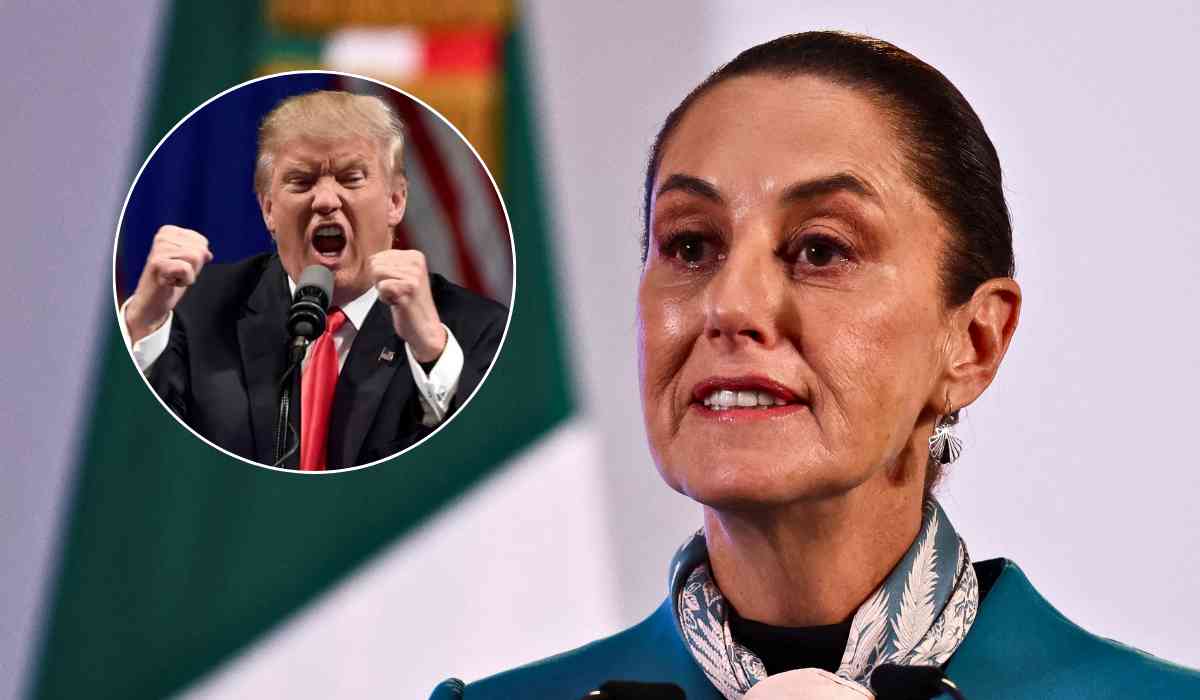Recently, a diplomatic tension surfaced between the United States and Mexico after former U.S. President Donald Trump proposed sending American troops into Mexico to assist in the fight against drug cartels. Mexican President Claudia Sheinbaum publicly rejected this proposal, emphasizing Mexico’s sovereignty and the importance of controlling its own territory.
The Proposal and Mexico’s Firm Rejection

According to Mexican President Sheinbaum, during a phone call in April 2025, Trump asked how he could help combat organized crime in Mexico and suggested deploying U.S. military forces on Mexican soil to fight drug trafficking. Sheinbaum responded firmly, stating that Mexico would never accept the presence of U.S. troops within its borders, underscoring that Mexican sovereignty is “inalienable” and “not for sale.” She insisted that while both countries can collaborate and share information, military presence must remain within each nation’s own territory.
Trump’s Reaction
Following Sheinbaum’s public refusal, Trump criticized her decision, suggesting that fear of Mexico’s powerful drug cartels might be the reason behind the rejection. He described Sheinbaum as “terrified” of the cartels, implying that her government was unable to effectively confront the criminal organizations. Trump confirmed that he had indeed proposed sending troops and expressed frustration over Mexico’s refusal to allow deeper U.S. military involvement.
The U.S.-Mexico Border and Drug Trafficking

The issue of drug trafficking, especially involving fentanyl, has been a major concern for the U.S. government. Trump’s administration has repeatedly criticized Mexico and Canada for what it sees as insufficient efforts to stop the flow of illegal drugs into the United States. Since January 2025, the U.S. has increased military presence along the southern border, establishing special military zones and deploying thousands of troops to deter illegal crossings and drug trafficking.
Despite this, Mexico has maintained that sovereignty and national dignity are paramount. President Sheinbaum’s stance reflects a broader Mexican policy of rejecting foreign military intervention, preferring cooperation through intelligence sharing and law enforcement collaboration rather than direct military involvement.
What's Next?
This episode highlights the delicate balance between cooperation and sovereignty in international relations. On one hand, the U.S. seeks to protect its borders and citizens from the dangers of drug trafficking, advocating for stronger measures including military cooperation. On the other hand, Mexico views the presence of foreign troops on its soil as a violation of its national sovereignty and an unacceptable precedent.
The rejection of U.S. troops by Mexico underscores the importance of respecting national boundaries and the sensitivities involved in bilateral security cooperation. While both nations face shared challenges from drug cartels, the methods to address these challenges differ, reflecting their distinct political and social contexts.

Moving forward, the two countries may need to focus on enhancing joint law enforcement efforts, intelligence sharing, and diplomatic dialogue to tackle drug trafficking without compromising sovereignty or escalating tensions. This situation serves as a reminder that international cooperation requires mutual respect and understanding of each country’s priorities and limits.
This development between Trump and Mexico’s President Sheinbaum is a significant moment in U.S.-Mexico relations, emphasizing the complexities of cross-border security and the enduring importance of sovereignty in diplomatic affairs.
With inputs from agencies
Image Source: Multiple agencies
© Copyright 2025. All Rights Reserved Powered by Vygr Media.

























